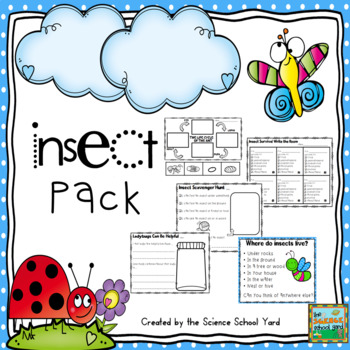Those creepy crawley insects! I love to bring insects into the classroom to help my students learn about the life cycles of different animals.
You can find ants outside or you can find crickets at your local pet store. I have to say I absolutely love crickets for the purpose of showing students even at a young age of first grade the difference between a male and a female. A female has an ovipositor in between the circe at the back of their body. This shows where the eggs are deposited from and the males are the only ones that make that sound to attract females. The other thing about crickets is to be able to show that some of our animals we are investigating are nocturnal! They have ways to protect themselves such as camouflage or big back legs to be able to jump. Give crickets a try!
You can even purchase butterfly larva or find some other insects around your yard to be able to bring in for students to see under hand lenses and the crème de la crème of insects are those fun little meal worms you can get for fishing! They are perfect for being able to let students see the three different changes from larva... to pupa... to adult. I even give each one of my students a vile so they can have a class pet to be able to watch and feed and even take for a walk on a plate! They love it when that darkling beetle is ready to be released, too! We have a fun release party for them so they can be in their natural habitat! And don't forget their is always the ant or bee to learn about!
Not only can you bring in insects but it’s great to find tadpole eggs or watch the raptors on the Decorah eagle site. The best time to do this in in February when the eggs are in the nest. Right now in June the eaglets are almost the same size as the mother eagle! (note: the babies fell from the perch and are both at the raptor rescue center. )
It is also really great to be able to connect plant life cycles so that students can see a variety of ways that animals and plants go through their life cycle and metamorphosis to change and grow. A fast growing plant for kids to see are radishes or even peas! The good ole' bean is perfect as well!
Are you needing to find a quick science lesson for your Littles how about pick up this insect pack and your sheets and activities are all set to go perfect for inside or outside. Find your Insect Pack HERE!It is also really great to be able to connect plant life cycles so that students can see a variety of ways that animals and plants go through their life cycle and metamorphosis to change and grow. A fast growing plant for kids to see are radishes or even peas! The good ole' bean is perfect as well!














No comments